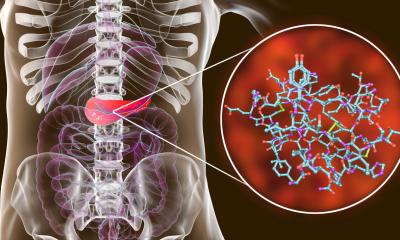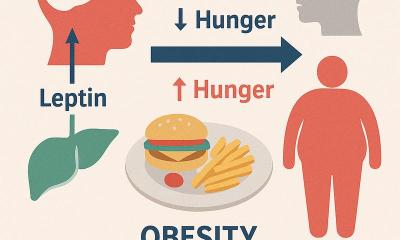Video • Sugar and health
The not so sweet side of Christmas
A new video by the University of Warwick highlights a bitter side to our sugar consumption at Christmas.
The short film highlights how excessive consumption of sugar can affect our health – and how the sugar trade in the past and today has caused inequality and bloodshed. Today Britons eat too much sugar, on average 10 per cent of our daily calories come from sugar which is equivalent to 60 g per day; however WHO guidelines state that adults should eat no more than of 30g of sugar a day which is just five per cent of our daily calorific intake. The type of sugars most adults and children in the UK eat too much of are "free sugars". These are any sugars added to food or drinks and include sugars in biscuits, chocolate, flavoured yoghurts, breakfast cereals and fizzy drinks. At Christmas sugar consumption can rocket thanks to traditional Christmas food and drink. A slice of Christmas cake will take you well over your recommended daily sugar allowance of 30g. A glass of mulled wine contains just under half of your total recommended sugar intake, Christmas pudding can have up to 45g of sugar per portion and a single mince pie can contain more than 22g of sugar.
This is particularly noticeable around Christmas when a whole new generation of children will be socialised be into associating certain foods and drinks with the festivities
Ben Richardson
Professor Franco Cappuccio of Warwick Medical School said: “As well as having a detrimental effect on your waistline sugar consumption above recommended levels can affect your health in other ways. Eating too much sugar and the excessive calories and increase in weight heightens your risk of health problems such as heart disease, some cancers and type 2 diabetes.” Dr Ben Richardson, department of politics and international studies, argues that it is probably not surprising that we have such a sweet tooth given the persistent marketing of confectionary which often targets the young. He said: “This is particularly noticeable around Christmas when a whole new generation of children will be socialised be into associating certain foods and drinks with the festivities.”
Professor Rebecca Earle department of history highlights the negative implications linked to our consumption of sugar other than those associated with our health. She points out that the manufacture of sugar in colonial times has a bitter history. Professor Earle said: “Most of the sugar manufactured in Britain was done using slavery. Working on sugar plantations was lethal and every stage of the production process was dangerous. As they said at the time ‘sugar was made with blood’”. Nowadays the manufacture of sugar is safeguarded as even in the most protected markets food manufacturers are allowed access to supplies of affordable sources of sugar. Summing up Professor Earle commented: “Sugar still takes the lives of those who grow it so whether we torment ourselves over our excessive sugar intake or enjoy festive treats we can also remember this longer more sombre history of sugar’s bitter side.”
Source: University of Warwick
20.12.2017





